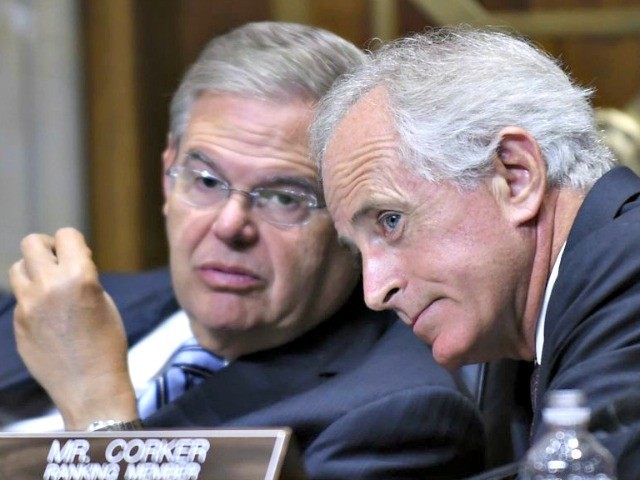President Barack Obama’s announcement that he will approach the UN Security Council to approve the nuclear deal with Iran, and rescind past resolutions and international sanctions, before Congress approves the agreement, came as something of a surprise to many. When Congress passed Sen. Bob Corker’s Iran Nuclear Agreement Review Act, and President Obama signed it into law in May, the public understanding was that Congress would have the final say.
It turns out that the President had no such intention. He is exploiting a loophole in the law, which states that the Act only applies to “statutory sanctions”—i.e. those passed by Congress. Other sanctions are within the power of the president to impose or remove. (There is another loophole, too: even statutory sanctions have a waiver provision that allows the president to remove them for reasons of national security.) Corker is reportedly angry, but there is nothing that he can do.
At the time the Corker bill was passed, critics (including this author) focused on the fact that the bill lowered the threshold for passing an international agreement. Instead of requiring a two-thirds majority for approval in the Senate, the Iran deal would now require a simple majority for approval in both houses, and a two-thirds majority to reject the deal by overriding the president’s veto.
Other critics, notably Andrew C. McCarthy, warned that the text President Obama gave to Congress would not necessarily be the one that he submitted to the UN Security Council.
But even that criticism assumed Obama would present the Iran deal to Congress first. Instead, he is going to the UN first, avoiding Congress entirely regarding core aspects of the deal.
That means that when Congress considers the deal, it will not be able to review the entire agreement. Certain aspects will be out of its hands and impossible to reverse.
Moreover, if Congress rejects the deal, it will not be able to send world powers back to the negotiating table. The best it can to is retain the sanctions the U.S. has imposed unilaterally—yet the president can still use waivers to lift those.
Unless the UN vote is delayed, there is only one way for Congress to exercise its full oversight powers on the Iran deal: the agreement could be introduced into the Senate as a treaty. That is the only way to stop Obama from implementing the agreement. But that, in turn, depends on Majority Leader Mitch McConnell allowing such a vote to come to the floor—which he will not.
The problem remains that under the Corker bill, it does not matter whether Congress rejects the Iran deal. Obama will use what he claims to be his executive powers to implement the deal, regardless.
The battle on Capitol Hill may still be worth having, because a deal that fails in Congress will lack legitimacy, especially if two-thirds of both houses override Obama’s veto. That would embolden Obama’s successor to end the deal, as some Republicans have vowed to do.
Realistically, however, there is only a small chance that a Republican president would revoke the Iran deal unilaterally in 2017, even if he or she could overcome international pressure to retain it, since doing so would provoke Iran to withdraw from the deal and race to the bomb.
The real purpose of the congressional fight over the Iran deal, then, is twofold.
First, Congress must expose the weaknesses of the deal, as well as the many blatant lies told by Obama and his toadies.
For example, there are no “anywhere, anytime” inspections, as promised to us by Secretary of Energy Ernest Moniz and Deputy National Security Advisor Ben Rhodes. We are now told by Under Secretary of State Wendy Sherman that these promises were just “rhetorical flourishes,” and we have also learned U.S. inspectors will be barred from even entering Iran.
Obama and his hapless team must own this terrible deal—and must be publicly shamed for it, to deter future presidents from the disastrous course of appeasement with America’s sworn enemies.
The second purpose—unspoken, perhaps unwitting thus far—is to prepare the basis for Israel to take unilateral action.
By exposing the Iran deal as a fraud, Congress can lay the foundation for Israel’s later arguments justifying a pre-emptive strike on Iran. It is a cop-out: the U.S. is better able to destroy Iran’s nuclear facilities, and Israel bears greater risk of retaliation. But it may be the only way to use this calamitous episode in U.S. foreign policy to any positive effect.
Once it is clear to all that the Iran deal is a sham, but that Obama is determined to implement it anyway, the most difficult question will be managing U.S.-Israel relations once Israel strikes.
Will Obama wink and nod? Or will he punish Israel? The time to consider those questions is now.

COMMENTS
Please let us know if you're having issues with commenting.